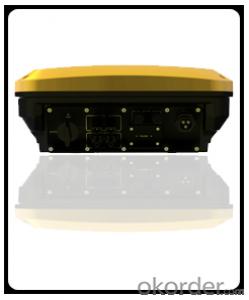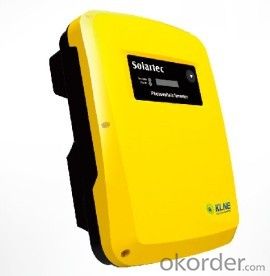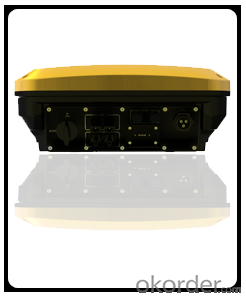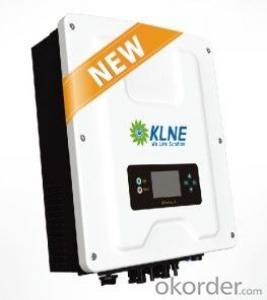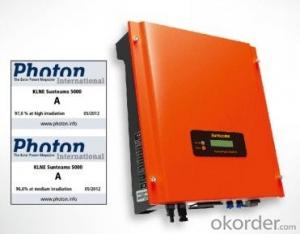Solartec 2500 on grid inverter with WIFI
- Loading Port:
- Shanghai
- Payment Terms:
- TT OR LC
- Min Order Qty:
- -
- Supply Capability:
- 10000 set/month
OKorder Service Pledge
Quality Product, Order Online Tracking, Timely Delivery
OKorder Financial Service
Credit Rating, Credit Services, Credit Purchasing
You Might Also Like
Solartec 1500, 2000,2500,3000,3600,4000,4600,5000
1MPPT, single phase
IP 65
New mold with Pure thick aluminum crust.
Efficient
■ Efficiency of up to 97.6 %
■ TransformerlessSafe
■ Integrated DC switch
■ Comprehensive protection functionsFlexible
■ LCD backlight
■ For indoor and outdoor installationSimple
■ ‘Plug and play’connection for easy installation
■ Friendly interface, easy to install and maintain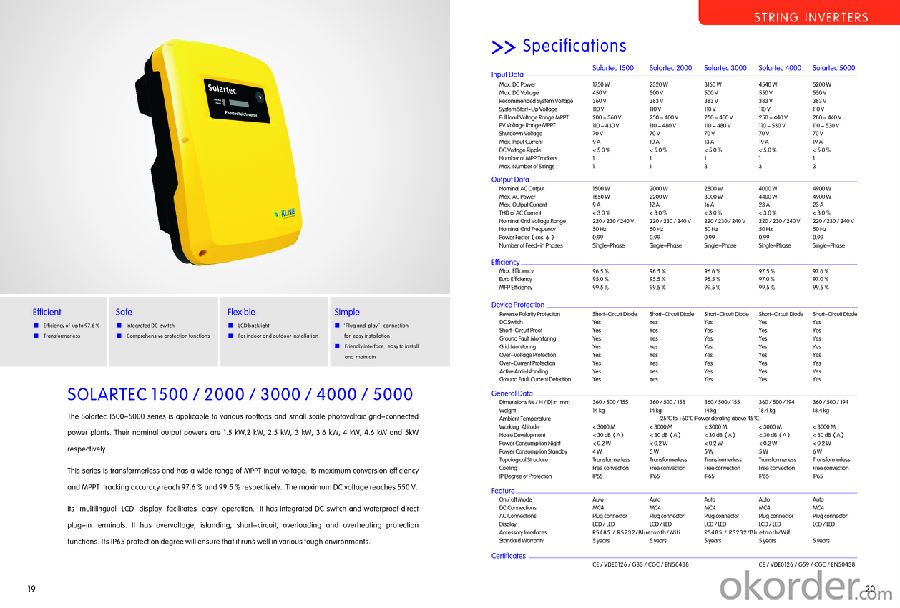
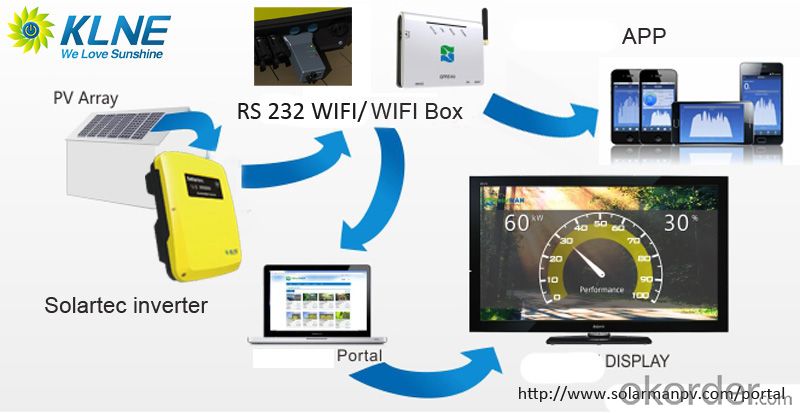
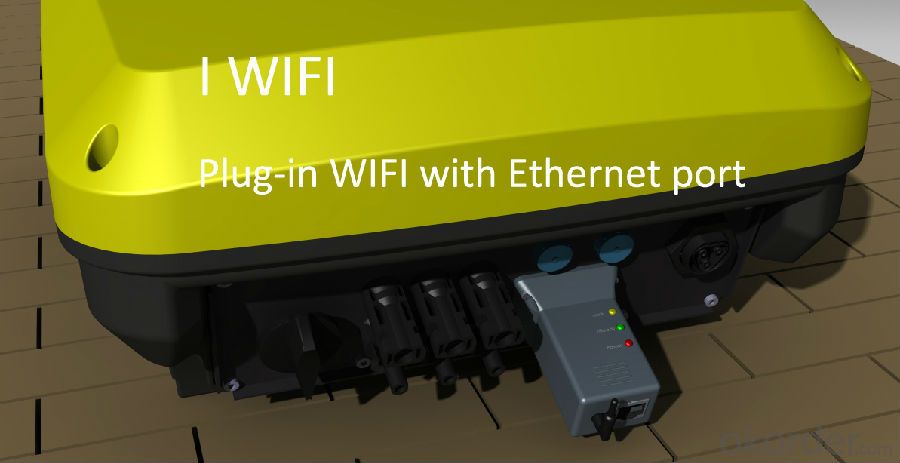
- Q: What is the role of anti-islanding protection in a solar inverter?
- The role of anti-islanding protection in a solar inverter is to ensure the safety of electrical grid workers by preventing the solar inverter from energizing the grid during a power outage. It is designed to detect grid failures and immediately disconnect the solar system from the grid, avoiding a potentially dangerous situation known as islanding. This protection feature helps maintain the stability and integrity of the electrical grid and protects both the grid workers and the solar system itself.
- Q: Are there any government regulations or certifications for solar inverters?
- Yes, there are government regulations and certifications for solar inverters. In many countries, solar inverters need to comply with specific standards and regulations to ensure their safety, performance, and grid compatibility. Additionally, there are various certifications, such as UL, CE, and IEC, that solar inverters can obtain to demonstrate their compliance with the required standards. These regulations and certifications aim to promote the widespread adoption of reliable and efficient solar inverters in the renewable energy industry.
- Q: How does the input current rating affect the performance of a solar inverter?
- The input current rating of a solar inverter affects its performance by determining the maximum amount of current it can handle from the solar panels. If the input current rating is too low, it may limit the amount of power that can be converted and fed into the electrical system. On the other hand, if the input current rating is too high, it may lead to excessive heat generation and potential damage to the inverter. Therefore, selecting an appropriate input current rating is crucial for optimal performance and efficient energy conversion of a solar inverter.
- Q: What is the role of a solar inverter in voltage support?
- The role of a solar inverter in voltage support is to convert the direct current (DC) power generated by solar panels into alternating current (AC) power that can be used to support the voltage requirements of electrical devices and the overall electrical grid. The inverter ensures that the AC power produced by solar panels matches the voltage and frequency requirements of the electrical system, thereby providing stable and reliable power supply.
- Q: How do you connect a solar inverter to solar panels?
- To connect a solar inverter to solar panels, the DC output of the solar panels needs to be connected to the DC input of the inverter. This is usually done using appropriately sized and rated solar cables and connectors. The positive terminal of the solar panel is connected to the positive terminal of the inverter, and the negative terminal of the solar panel is connected to the negative terminal of the inverter. Properly following the manufacturer's instructions and guidelines is crucial to ensure a safe and efficient connection.
- Q: Can a solar inverter be used with a solar-powered outdoor lighting system?
- Yes, a solar inverter can be used with a solar-powered outdoor lighting system. A solar inverter is responsible for converting the direct current (DC) generated by solar panels into alternating current (AC) that can be used to power various devices, including outdoor lighting systems. By connecting the solar panels to a solar inverter, the generated energy can be efficiently transformed and utilized for powering the lighting system, ensuring sustainable and renewable lighting solutions.
- Q: How does a solar inverter handle voltage transients?
- A solar inverter handles voltage transients by continuously monitoring the voltage levels and adjusting its internal circuitry to maintain a stable output voltage. It uses advanced control algorithms and protective features to mitigate the effects of sudden changes in input voltage, such as voltage spikes or dips, ensuring the smooth and reliable operation of the solar power system.
- Q: Can a solar inverter be used with solar-powered emergency backup systems?
- Yes, a solar inverter can be used with solar-powered emergency backup systems. A solar inverter is an essential component in converting the direct current (DC) generated by solar panels into alternating current (AC) that can be used to power appliances and devices. By connecting the solar inverter to a solar-powered emergency backup system, the excess solar energy can be stored in batteries or fed back into the grid, providing a reliable source of electricity during power outages or emergencies.
- Q: Can a solar inverter be used in a commercial or industrial setting?
- Yes, a solar inverter can be used in a commercial or industrial setting. In fact, they are commonly used in these settings to convert the direct current (DC) electricity generated by solar panels into alternating current (AC) electricity that is suitable for use in commercial or industrial buildings. Solar inverters are designed to handle larger electricity loads and are capable of efficiently powering various electrical equipment and machinery in such settings.
- Q: Can a solar inverter be used with a solar-powered electric fence system?
- Yes, a solar inverter can be used with a solar-powered electric fence system. The solar inverter is responsible for converting the direct current (DC) generated by the solar panels into alternating current (AC) to power the electric fence system. This allows the solar panels to efficiently charge the battery and power the electric fence, providing a renewable and sustainable energy solution.
Send your message to us
Solartec 2500 on grid inverter with WIFI
- Loading Port:
- Shanghai
- Payment Terms:
- TT OR LC
- Min Order Qty:
- -
- Supply Capability:
- 10000 set/month
OKorder Service Pledge
Quality Product, Order Online Tracking, Timely Delivery
OKorder Financial Service
Credit Rating, Credit Services, Credit Purchasing
Similar products
Hot products
Hot Searches
Related keywords

